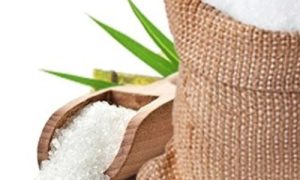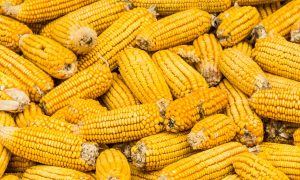Davangere Sugar Looks to Leverage Ethanol Production Capabilities As Govt Urges Sugar Mills to Explore Alternatives

During FY 2024-2025, Davangere Sugar Company will produce ethanol from maize and other grains. The government supports using diverse feedstocks to reach a 20% ethanol blending target by 2025-26, ahead of the 2030 deadline. Amit Shah emphasized modernizing and expanding ethanol production. Davangere plans to boost maize procurement and partner with farmers for higher yields, targeting 15,000 acres of sugarcane cultivation and supporting farmers with subsidies and resources.
New Delhi: During the Financial year 2024-2025, Davangere Sugar Company Limited plans to produce Ethanol primarily from maize and other damaged grains until the crushing season begins in October 2024. The government called on sugar mills to explore alternatives to sugarcane for ethanol production, pushing for a multi-dimensional approach to biofuel manufacturing.
Speaking at an event organised by the National Federation of Cooperative Sugar Factories (NFCSF), Amit Shah said India would achieve its 20 per cent ethanol blending target by 2025-26, ahead of the original 2030 deadline .The minister highlighted that the government’s ethanol blending programme has helped reduce the country’s crude oil import bill and address environmental concerns.
“You need to be futuristic and look at opportunities and expand. Ethanol can be made from multiple sources,” Shah said, urging cooperative sugar mills to shed their “orthodox” approach and explore alternative feedstocks such as maize and bamboo.
To maximize ethanol production, the Davangere Sugar Company Ltd. aims to procure larger quantities of maize from various regions across the country. Government policy currently encourages Ethanol production from maize, and the Central Government is in the process of establishing a National Coordinating Agency (NAFED) to procure maize from farmers and supply it to sugar factories for ethanol production.
This initiative will benefit our factory and others by ensuring a sufficient supply of maize for continuous, year-round operations. The Sugar and Ethanol industry has been steadily benefiting from government policies allowing the production of Ethanol from grain.
Based on National News Reports, previously in FY 2023-2024, approximately 37% of ethanol produced in the country was produced from grain. However, in FY 2024-2025, grain-based ethanol has contributed to approximately 51% of total ethanol produced in the country.
Additionally, our company is strategically partnering with surrounding village farmers by providing sugarcane seeds and other inputs at subsidized rates to help them receive higher sugarcane yields and enhance their commercial benefits. Company has initiated the process of providing plantation subsidies to further support the farmers. Company is targeting to achieve about 15000 acres of sugarcane cultivation for the forthcoming season.
DSCL is committed to not just cultivating sugarcane, but to revolutionize its growth and practices. One of our key initiatives involves promoting and developing sugarcane crops up to 15000 acres in existing cane cultivation areas and regions traditionally not associated with cane cultivation. By expanding into this non-cane growing areas and ensuring sufficient raw material for the company, we not only secure a sustainable raw material supply for our company but also usher in a wave of socio¬ economic benefits for local farmers.
The company further added, “Our primary aim is to provide farmers in these regions with assured and timely returns on their produce. We understand the challenges they face and strive to alleviate them through various means, including financial assistance and loans. These resources are designed to empower farmers, enabling them to invest in modem agricultural practices, procure quality seeds, and access essential equipment.”














